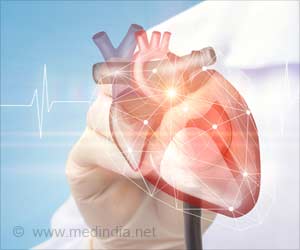In a path breaking study, researchers have identified a signalling protein that plays a key role restraining damage during cardiac arrest.
In a path breaking study, researchers have identified a signalling protein that plays a key role restraining damage during cardiac arrest.
Scientists at the Center for Translational Medicine at Thomas Jefferson University in Philadelphia discovered that the protein Gi is crucial to protecting the heart and helping it to adapt during a heart attack.Gi protein is known to have increased activity in the failing heart, but researchers have never been sure if it was helping the heart adapt to damage or if it was actually causing more heart cells to die.
For the study, the Jefferson team, led by Walter Koch, Ph.D., W.W. Smith Professor of Medicine and director of the Center for Translational Medicine in the Department of Medicine at Jefferson Medical College, experimentally blocked the protein in the hearts of genetically engineered mice experiencing heart attacks.
The team found that the animals had greater heart damage than did similar mice with a working protein
Dr. Koch noted that Gi is important in intracellular signalling, akin to a molecular switch. It’s not a new drug target, he explains, but the activation of some receptors (such as beta-2 adrenergic receptors) that also turn on Gi could be targets.
Developing a “class-specific Gi inhibitor,” Dr. Koch said, is an important step to understanding Gi’s role and behaviour.
Advertisement
In the work, Dr. Koch’s group developed a transgenic mouse with a “functional knockout” of the Gi gene, meaning that it lacked a working gene. The scientists then simulated a heart attack; catheterization and reperfusion by tieing off a coronary artery for 30 minutes and subsequently re-establishing the blood flow, causing an inflammatory response and tissue damage.
Advertisement
He added that his team would like to find out Gi’s role in chronic heart failure, where there is much less cell death occurring, and Gi levels remain high.
In the chronic phase, Dr. Koch pointed out, Gi activity could be “maladaptive.”
He said that they are planning to test the idea in chronic heart failure animal models.
The study is published in the journal Circulation.
Source-ANI
KAV/L











